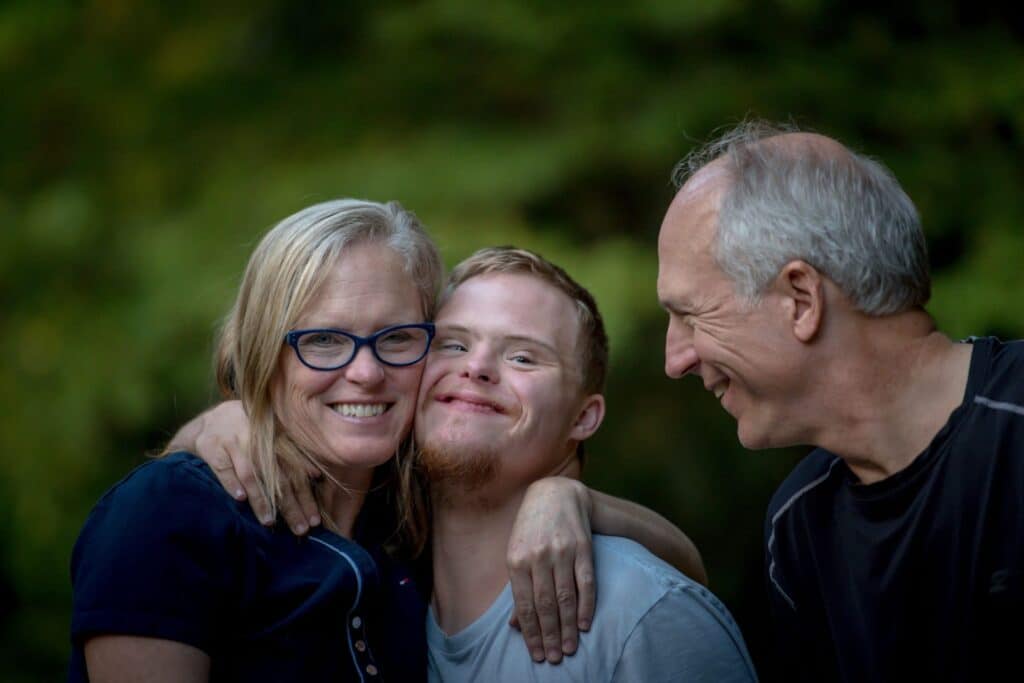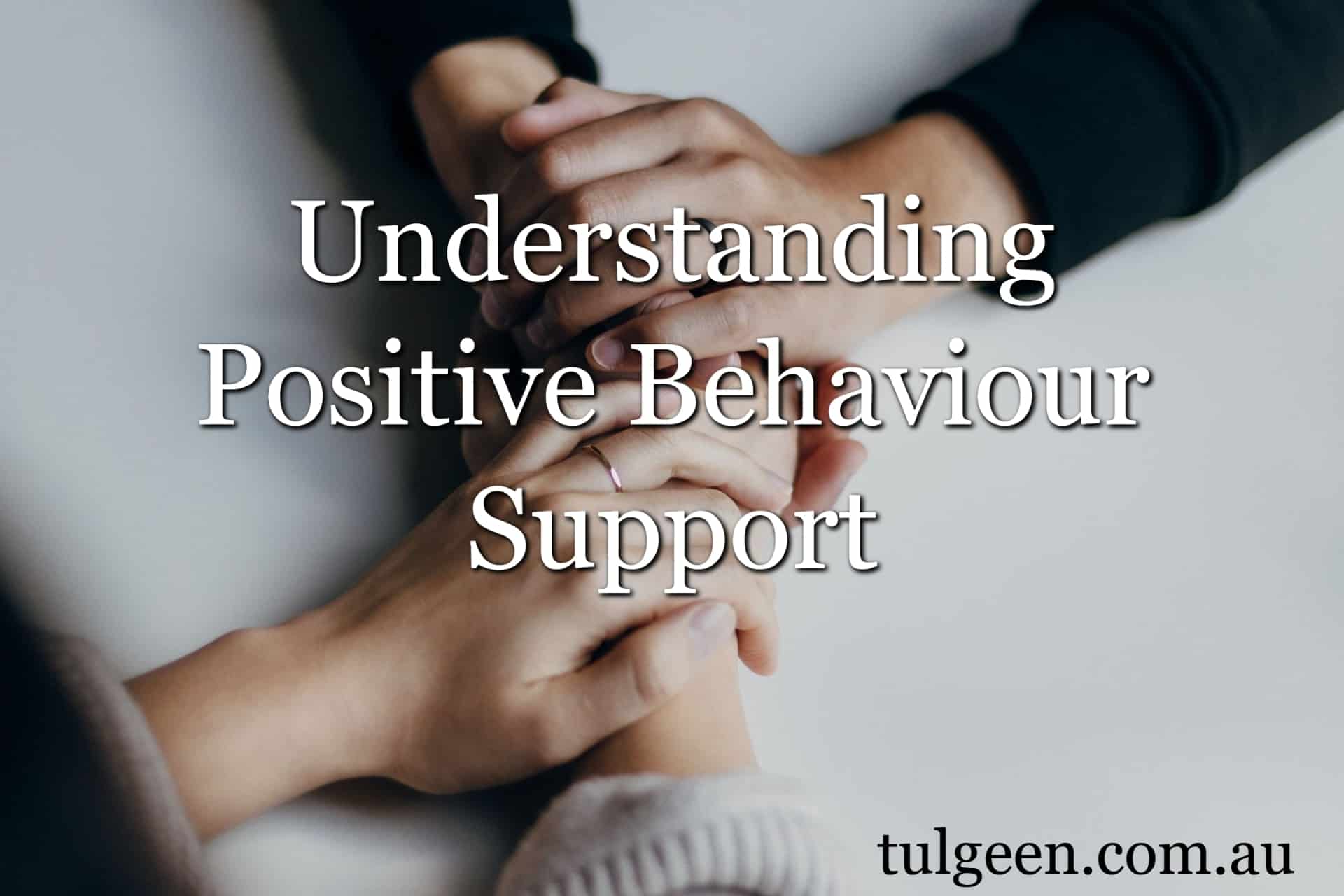What is Positive Behaviour Support?
Positive Behaviour Support (PBS) is an approach to working with individuals with intellectual disability which focuses on teaching them skills to enable them to live more independently within their community. PBS is based on the premise that learning and developing positive behaviours can lead to improved outcomes for people with intellectual disability.
The main aim of PBS is to help people with intellectual disability learn how to behave positively towards themselves and others. This includes helping them develop self-awareness and understanding their own emotions and feelings, in order to better regulate their emotions and behaviours.
This approach differs from traditional methods of training because it teaches people with intellectual disability to apply these skills in real life situations rather than simply in a controlled environment.
What is the philosophy behind Positive Behaviour Support?
The most important thing when working with someone with a disability is to make sure they feel safe and secure. This means making sure that they are able to access information, communicate effectively and participate in activities without fear of discrimination or bullying.
It also means ensuring that they have opportunities to learn and develop skills that will enable them to live independently and contribute fully to society.
This requires an understanding of how the person perceives themselves, their environment and their abilities.
In order to achieve these goals we need to ensure that there are accessible environments where people with disabilities can safely interact with each other and with those who support them.
These environments should include appropriate physical spaces, equipment and technology that enables people with disabilities to engage in everyday life.
They should also provide opportunities for learning, training and development. These could include education, employment, leisure and recreation, health care and social services.
People with disabilities often face barriers to accessing these services because of prejudice, stereotypes and lack of awareness.
To overcome these challenges, PBS programmes aim to change attitudes towards people with disabilities and promote positive behaviour among children, young people and adults with disabilities.

What Is A Challenging Behaviour, or Behaviour of Concern?
People with disabilities often face challenges when interacting with others. This can lead to challenging behaviours such as aggression, self-injury, and depression. These behaviours can make it hard for them to communicate effectively with others.
Because of this, people with disabilities are often stereotyped as having poor communication skills and limited cognitive abilities. However, there are many ways to overcome these challenges and make life easier for them.
The most important aspect of any disability is understanding how it affects the person and making sure that they receive the support they need. This includes ensuring that they feel safe and secure when interacting with others.
It is also essential to ensure that they are able to communicate effectively with others. People with disabilities may find it difficult to express themselves verbally due to physical limitations or lack of experience.
Some people with disabilities may struggle to speak because they do not have the ability to form words correctly. Others may have trouble expressing themselves verbally because they cannot read or write. In these cases, a challenging behaviour may feel like the only way to communicate their needs.
How Does Positive Behaviour Support Work?
Positive Behaviour Support (PBS) is an evidence-based practice that supports individuals with disabilities to develop skills for managing their own behaviours. PBS provides opportunities for individuals to learn how to control their emotions, set limits, communicate effectively, problem solve and make decisions.
The goal of PBS is to help individuals become more independent and reduce the impact of challenging behaviours on themselves and those around them.
It is important to note that PBS is not a cure for challenging behaviours; rather, it helps individuals learn strategies to cope with these behaviours.
PBS also includes teaching individuals how to recognise and respond appropriately to situations where challenging behaviours occur. This may include helping individuals identify triggers for their behaviours, such as stressors, transitions, changes in routine, and/or sensory stimuli.
PBS helps individuals learn to identify and regulate their emotions, and teaches them how to behave positively towards themselves and others. Individuals learn to control their impulses and become more independent.
How Behaviour Support Plans Can Help
A Behaviour Support Plan is a comprehensive overview of the history, communication, behaviours, and other needs of a person with a disability. This plan is developed by a Behaviour Support Practitioner in consultation with the person, as well as important people in their lives, such as family members, Support Workers, and medical practitioners.
They are designed to help people with disabilities manage their emotions and behaviours, and ultimately live more independently.
Behaviour support planning begins with a meeting between the person, important people in their lives, and behaviour support practitioner. During this initial session, the behaviour support practitioner gathers information about the person’s abilities and limitations.
After gathering this information, the professional develops a written plan based on the person’s goals and preferences. The plan outlines how the person will achieve his or her goals, and how others can support that person to achieve those goals.
The plan may include activities that require direct supervision, such as preparing meals, driving, or paying bills; or tasks that do not require supervision, such as grocery shopping or laundry.
Behaviour supports are often used in conjunction with medication, physical therapy, occupational therapy, speech pathology, and psychological counselling.
Why Is A Functional Assessment Important
A Functional Assessment is an essential tool for any organisation that supports people with disabilities.
A Functional Assessment is used to identify the strengths and weaknesses of an individual, group, or organisation. It helps determine which areas of life require improvement and how best to help them succeed.
The purpose of a Functional Assessment is to provide information that will guide decisions related to providing services and programs to improve the quality of life of individuals with disabilities.
It provides a snapshot of the person’s current abilities and limitations, and identifies opportunities for change.
An effective Functional Assessment requires knowledge of the person’s history, skills, interests, goals, values, attitudes, beliefs, and preferences.
The results of a Functional Assessment can be used to develop strategies to promote independence, maximise potential, and achieve personal goals.

